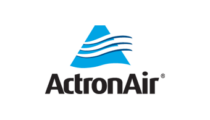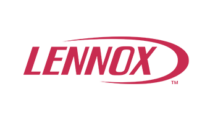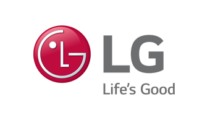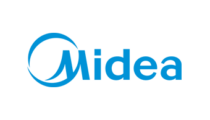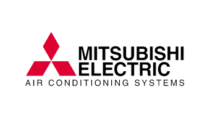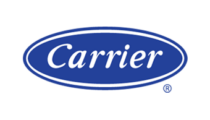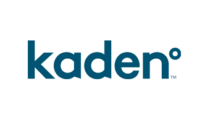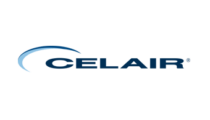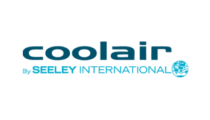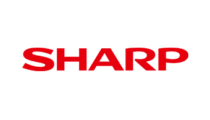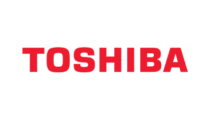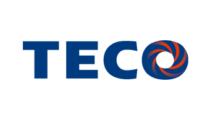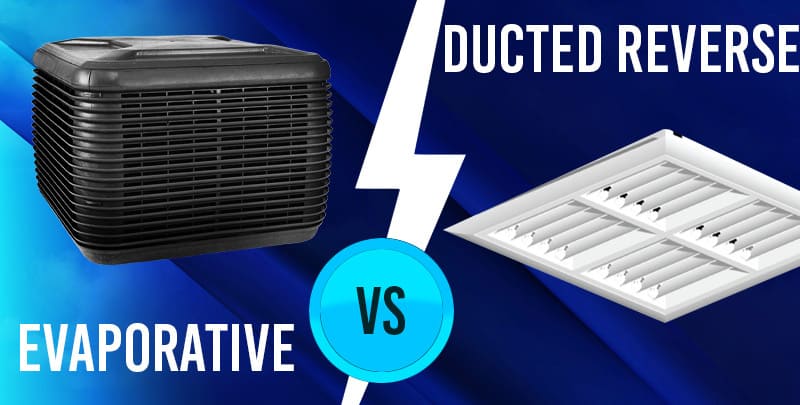
Ducted Air Conditioning vs Evaporative Cooling
With so many types of air cons on the market, it’s easy to become overwhelmed when deciding on your home’s perfect fit.
To help simplify this process, we’ve broken down the pros and cons between two cooling titans: ducted air conditioning and evaporative cooling.
How Ducted Air Conditioning Works
Ducted air conditioners that are reverse cycle are heating and cooling systems for your home all year round. Ducted air conditioning uses a refrigerant to cool external hot air which is then used to cool your home. When it is used for heating, it warms air from outside and pumps this into your home.
Ducted heating and cooling has a range of pros which make it an attractive solution to keep your home air conditioned:
- Ducts are discreet and seamlessly installed
- One unit for both your heating and cooling needs
- Filters the air
- Works well in all weather conditions
- Zoning control so you can target specific rooms
- More energy efficient
- More environmentally friendly
- Modern ducted air cons use safe refrigerants
Ducted systems have evolved over the years to introduce zoning capabilities to their list of useful features. Zoning allows the user to control which rooms in a home are receiving conditioned air. This has vastly improved the efficiency of ducted systems, as they no longer need to work hard to cool an entire home unnecessarily.
Despite these benefits, there are a few negatives that come along with having a ducted AC. The cost of ducted air conditioning installation, as well as the ongoing cost, can be higher than other comparable air conditioners.
For a ducted air conditioner to work efficiently, all your doors and windows must also be shut. If this isn’t the case, your ducted air con will need to work harder, and possibly waste your money, to efficiently heat or cool your home.
The Benefits of Ducted Air Conditioning
When it comes to keeping your home comfortable, ducted air conditioning is a game-changer. This cooling system offers several benefits that can make your life much more pleasant during hot summer months.
- Even temperature distribution: One of the standout advantages of ducted air conditioning is its ability to maintain a consistent temperature throughout your entire home. Unlike traditional AC units that might have hot spots and cold spots, ducted systems evenly distribute cool air, ensuring every room stays comfortable.
- Quiet operation: Ducted air conditioning units are designed to run quietly, so you won’t be disturbed by noisy fans or compressors. You can enjoy a peaceful and tranquil environment in your home while enjoying your system’s impressive cooling capacity.
- Aesthetic appeal: Ducted systems are discreet. The vents are typically installed flush with your ceiling, which means you won’t have bulky window units obstructing your view or taking up valuable space. Your home’s interior design remains intact.
- Energy efficiency: Many ducted air conditioners are energy-efficient, which can save you money on your utility bills. They often have programmable thermostats, allowing you to set specific temperatures for different times of the day, further reducing energy consumption.
- Heating and cooling: If you’re using a reverse cycle system you can enjoy warm air in the winter and cooled air in the summer, giving you complete temperature control.
- Increased property value: Installing a ducted air conditioning system can boost your home’s resale value. Potential buyers appreciate the convenience and comfort it provides, making your property more appealing in the real estate market.
In summary, ducted air conditioners offer a host of benefits, from even temperature distribution to energy efficiency and improved aesthetics. This kind of refrigerated air conditioning is a smart investment in your home’s comfort and value.
Refrigerants in Ducted Air Conditioning
In addition, some older ducted heating and cooling systems use potentially dangerous refrigerants. In 1996, Australia started phasing out hydrochlorofluorocarbons (HCFCs) under the Ozone Protection and Synthetic Greenhouse Gas Management Act 1989.
These refrigerants have relatively high global warming potential, and also require special handling. Bulk imports of HCFCs will be banned from 2030 in Australia. Servicing systems that still use them will solely rely on reclaimed HCFCs.
Hydrofluorocarbons (HFCs) are an alternative refrigerant with less global warming potential than HCFCs. They are currently the most common refrigerant used, however, there is an HFC phase-down as of 2018. When compared to HCFCs, they still have a relatively high global warming potential.
However, HFC-based air conditioners are now slowly being replaced by new refrigerants that have little to no global warming potential.
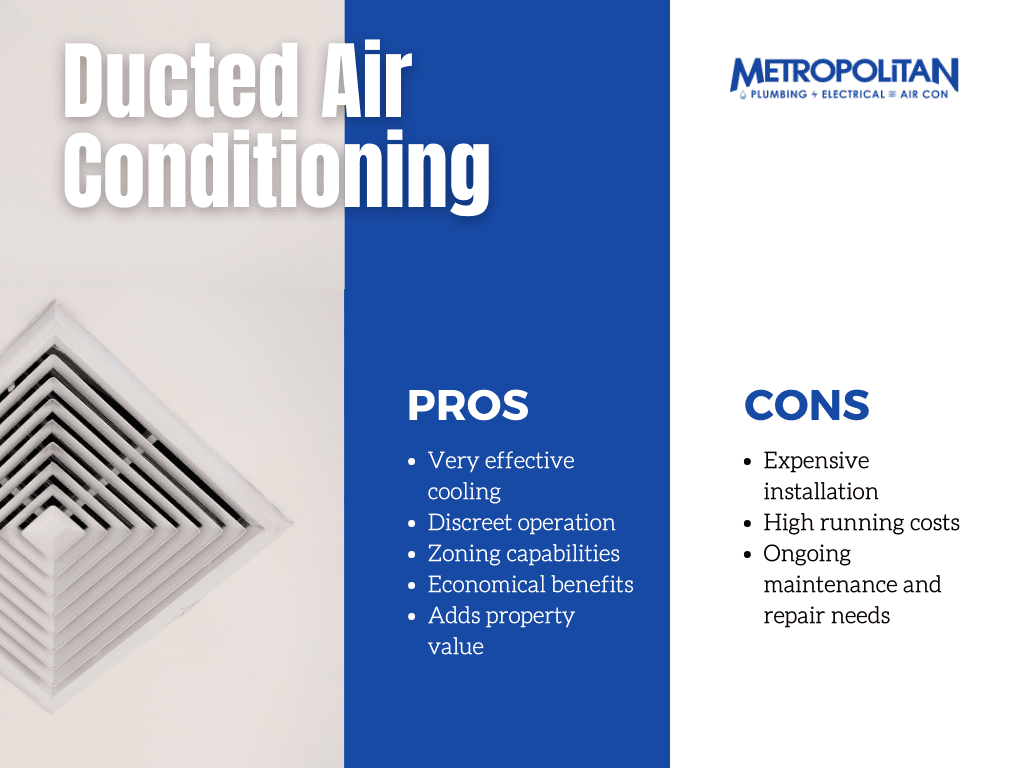
How Evaporative Cooling Functions
Evaporative cooling works differently to ducted cooling. These cooling units are installed on the roof of a home for optimal airflow exposure. Evaporative coolers draw in the hot, dry outdoor air through a vent and pass it through cooling pads.
These pads are soaked with water from an internal cooling tank. As the hot air passes through the pads, the water is evaporated into a cool vapour. An internal fan then pumps the now cool air throughout the home via ductwork.
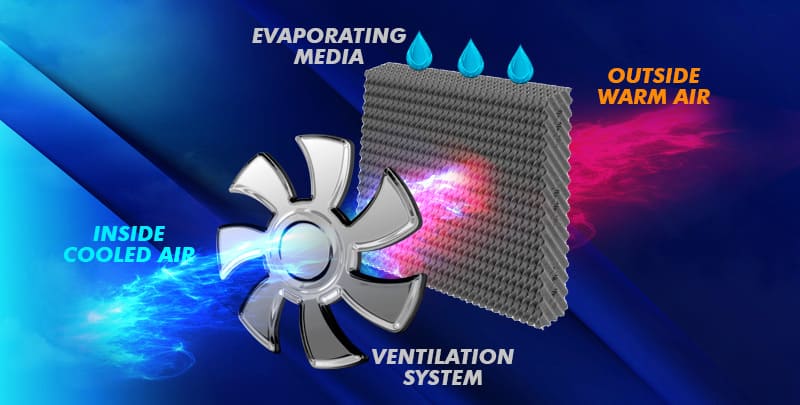
Evaporative cooling has been a popular choice for Australian homes for a variety of reasons:
- Cheaper to install than ducted air conditioning
- Running cost is more affordable
- Easy to maintain
- Only uses fresh air
- Eco-friendly
Evaporative coolers rely on the air outside being less humid than the air inside, so evaporative air conditioning is most effective in drier climates such as Adelaide and Perth.
For locations with greater humidity, such as in Queensland, an evaporative cooling system won’t be as effective.
Additionally, while an evaporative air cooler has a more affordable installation and running cost, it can only be used to cool your home. If you desire any heating, a second system specifically for heating will need to be installed.
Furthermore, an evaporative cooling unit has less temperature control than ducted air conditioning and also runs the risk of a water leak.
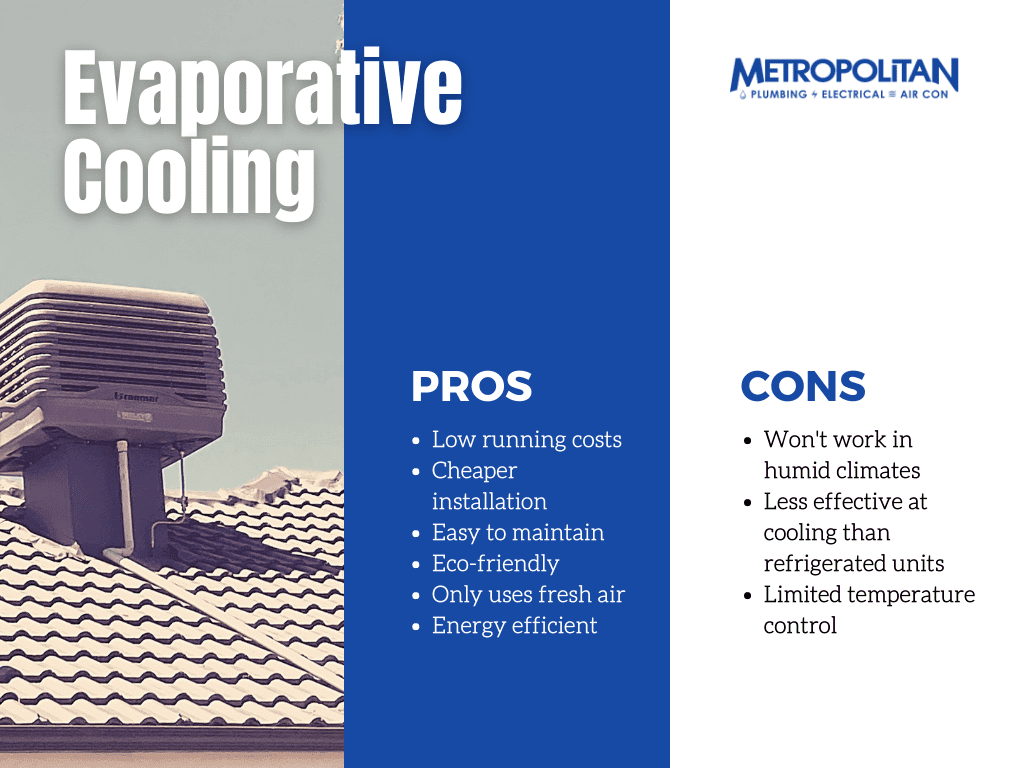
The Cool Choice: Exploring the Advantages of Evaporative Cooling
When it comes to beating the heat, evaporative cooling has its own set of unique advantages that make it a popular choice for many homeowners.
- Cost-efficiency: Evaporative coolers are incredibly cost-effective to run. They use significantly less electricity compared to traditional air conditioning units, giving you energy efficient cooling and substantial savings on your energy bills.
- Environmentally friendly: Evaporative cooling systems are an eco-friendly cooling option. It doesn’t rely on harmful refrigerants, making it a greener choice for those concerned about their carbon footprint.
- Fresh air supply: Unlike air conditioning, which recirculates the same indoor air, evaporative coolers constantly bring in fresh outdoor air. This not only cools your home but also improves indoor air quality by expelling stale air and odours.
- Low maintenance: Evaporative coolers have relatively simple maintenance requirements. They don’t have as many moving parts as traditional AC systems, which means fewer chances for costly breakdowns. Regular cleaning and pad replacement are usually all that’s needed.
- Effective in dry climates: Evaporative coolers work best in dry, arid climates where humidity is low. They add cooled moist air to your home, making them especially efficient in regions with hot, dry summers.
- Simple installation: Installing an evaporative air cooler is generally less complicated and more affordable than setting up a ducted air conditioning system. It’s a practical option for homeowners looking for a budget-friendly cooling solution.
In summary, an evaporative air conditioner offers cost-efficiency, environmental friendliness, and a supply of fresh, cool air. It’s an excellent choice for those living in dry climates and seeking a straightforward, low-maintenance cooling solution.
Takeaway – What is the Best Air Conditioner?
When choosing whether a ducted air conditioner or an evaporative cooler will best suit your home, there is a range of things to consider:
- Installation cost
- Running cost
- Maintenance
- Climate
- Environmental impact
- Temperature control
If you live in an especially humid climate, evaporative cooling likely won’t be the best fit for your home. Likewise, if you want one unit to both heat and cool your home, an evaporative system won’t be the solution for you. Ducted reverse cycle is an effective solution for most homes but will set you back more upfront.
Choosing the right air conditioner for your home can be a major decision and a big financial commitment. If you’re unsure what type will suit your home, contact Metropolitan Air Conditioning and we can help you in this process.
Please note: This information is provided for advice purposes only. Regulations differ from state to state, so please consult your local authorities or an industry professional before proceeding with any work. See our Terms & Conditions here.
Published: 2020-07-10





